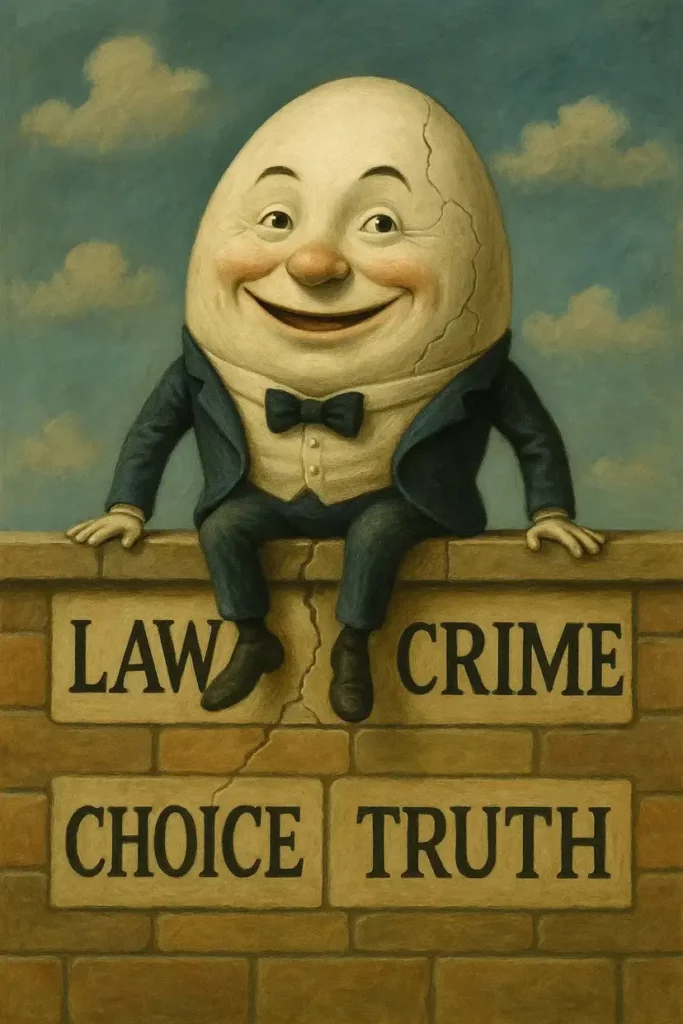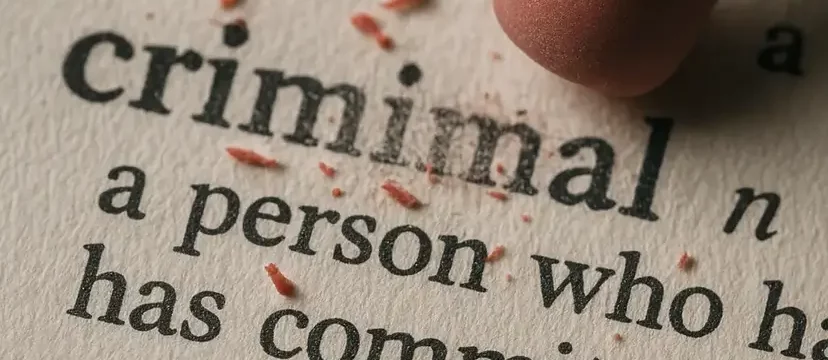Rethinking Miranda Devine’s Argument
Miranda Devine is smart. She’s a columnist for the New York Post, a FOX News contributor, and more, having written for numerous publications and author of two books, perhaps the most famous “Laptop from Hell: Hunter Biden, Big Tech, and the Dirty Secrets the President Tried to Hide.”
Her latest essay — Lawlessness Is a Choice – in the October 2025 | Volume 54, Issue 10 of Imprimis is based on a speech delivered on September 30, 2025, at Hillsdale College’s Blake Center for Faith and Freedom in Somers, Connecticut. In it, she uses 2,683 words to point out the absurdity of a Texas Democrat Congresswoman Jasmine Crockett’s quote: “’Just because someone has committed a crime, it doesn’t make them a criminal.’” Yet, at the end of the piece Devine concludes: “From that skewed perspective[a deliberate choice by progressives to preserve lawlessness in their cities], maybe Crockett isn’t so nutty after all.”
Curious.
To prove her point she moved through current events, such as ICE and Border Patrol officers under attack from militants, the assassination of Charlie Kirk. the BLM-Antifa riots of 2020, Trump’s two assassination attempts last year, UnitedHealthcare CEO Brian Thompson assassination by Luigi Mangione, Daniel Penny’s subway actions to subdue a homeless, mentally ill man, the assassination of embassy staffers Yaron Lischinsky and his fiancée Sarah Lynn Milgrim, and finally the 23-year-old Ukrainian refugee Iryna Zarutska who murdered with a knife on a subway train.
These examples are the proof for her thesis: Lawlessness is a choice.
Duh.
Because if lawlessness is a choice, so is obeying the law a choice. What isn’t a choice?
She called Crockett’s conclusion “nutty.” But is it? Especially since Devine seems to come to the conclusion that it may be no so nutty after all.
The fact is, she is right: It IS nutty, and I cite Humpty Dumpty as my proof.

“And only ONE for birthday presents, you know. There’s glory for you!”
“I don’t know what you mean by ‘glory,’” Alice said.
Humpty Dumpty smiled contemptuously. “Of course you don’t– till I tell you. I meant ‘there’s a nice knock-down argument for you!’”
“But ‘glory’ doesn’t mean ‘a nice knock-down argument,’” Alice objected.
“When I use a word,” Humpty Dumpty said in rather a scornful tone, “it means just what I choose it to mean–neither more nor less.”
“The question is,” said Alice, “whether you CAN make words mean so many different things.”
“The question is,” said Humpty Dumpty, “which is to be master– that’s all.”
This is the essence of communication: definitions. If you and I agree on a definition of a word, communication takes place. If we don’t, communication doesn’t take place.
So when Crockett says: “Just because someone has committed a crime, it doesn’t make them a criminal,” someone should have asked her to define the word “criminal.” Or “crime.”
Google will tell you without hesitation that “criminal” means” a person who has committed a crime.” So what is Crockett saying? If I commit a crime, am I a criminal or not? And if she says I am not, then what am I when I commit a crime?
Well, I can be anything, can’t I?
She is following Humpty Dumpty’s philosophy of making words mean anything she wants, thereby sacrificing communication. Does Devine need 2,683 words to prove Crockett’s statement (like Humpty’s was) is absurd? Or that to commit a crime or not is a choice? Devine even wrote: “Crockett chooses her own definitions” – the essence of Humpty’s philosophy of the meaning of words.
And perhaps that is the real discussion that should have been: how we define words these days? How we make up new definitions “on the fly” or through repetition, change the meaning so that a word’s meaning becomes bastardized (i.e., what really IS an “existential” threat? Or, a Nazi?)
And we’re all guilty of such usages, aren’t we? For example, Devine writes: “It is common sense that law and order is an 80-20 issue.” She cites an AP-NORC poll where 81% say crime is a major problem, and “the other 19 percent must be either criminals, progressive politicians, or both.”
Not true.
Law and Order isn’t an 80-20 issue – it’s a 100-0 issue if you are talking common sense. Who among us (outside of the anarchist) would say otherwise? The fact Devine cites a poll is in itself “nutty.” Polls don’t reflect common sense, do they?
She points to the democrat party as having a “hostility to law and order…that has made defunding the police an article of faith.” Is it “an article of faith” — a firmly held belief? While observation reveals that it seems to be, “seems” and “being” are very different. Can it be that the democrat party is really “for crime?” Really for crime?
It seems so, and if it is, well, that’s their choice isn’t it?
Choice should have been the subject matter at hand, and trying to understand choices that are made. Of course lawlessness is a choice, just as law and order is a choice.
I think the better title for her piece should have been “Why Democrats Chose Lawlessness.” But then, it would have to have been something else than the regurgitation of crimes that were committed. And respectfully, that deeper dive would require many more than 2,683 words!
Or would it?
Thanks for reading. Always interested in your reactions and feedback.

